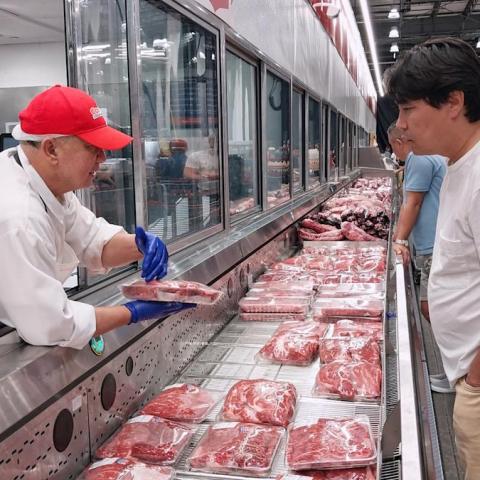According to a recent study reported by BBC Science Focus, only Guyana can meet all its food needs from local production. This raises important concerns about food security worldwide.
The Covid pandemic, the war in Ukraine, and climate change have all disrupted food supply chains. These challenges are prompting countries to rethink their self-sufficiency and food security strategies. The study published in Nature Food examined how well countries can meet their dietary guidelines based solely on what they produce domestically.
It turns out that over one-third of countries struggle to self-sustain for more than two of the seven key food groups analyzed: fruits, vegetables, dairy, meat, fish, plant-based proteins, and starchy staples. Relying heavily on imports can leave nations vulnerable, especially smaller ones.
After Guyana, China and Vietnam come close, being self-sufficient in six food groups. However, both lag in dairy. Surprisingly, nearly two-thirds of countries produce excess meat compared to their population’s needs, but the situation is different in sub-Saharan Africa, which faces significant meat shortages.
Fish and seafood pose another problem, with only about a quarter of countries able to meet their needs. A whopping 60% can’t even cover half of their requirements. This is a growing concern, considering that global fish stocks are dwindling.
Looking at starchy staples, around 45% of countries achieve self-sufficiency, while only 24% manage this with vegetables. Most nations that do well in vegetable production are in the Mediterranean and Central Asia. Unfortunately, sub-Saharan Africa has a staggering 91% of its countries falling short.
When it comes to legislation, some regions are taking steps to improve their food security. For instance, urban agriculture is gaining traction in many cities around the world, allowing local communities to grow their own food. Research suggests that cities can be self-sufficient in fruits and vegetables, which could help reduce reliance on imports.
Experts like Dr. Jonas Stehl emphasize that low self-sufficiency isn’t always a negative thing. “There are often legitimate reasons for importing food, like poor agricultural conditions,” he states. However, he warns that this can also limit a nation’s ability to handle sudden shocks in global food supply, such as conflicts or climate events.
As we navigate these complex issues, it’s clear that achieving food self-sufficiency is more crucial than ever. Global food systems need to be resilient, especially in the face of ongoing challenges.



















